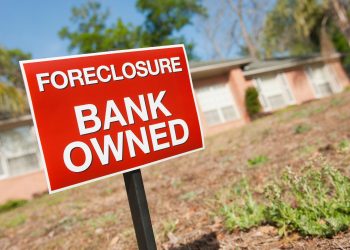Conversations surrounding racial bias in real estate aren’t new, but they have resurfaced as home appraisals gaps based on subjective judgment have slighted minority homeowners looking to capitalize on their accrued equity.
Recent reports have placed a more public light on the adverse effects in minority neighborhoods. However, they also raise questions among industry professionals about addressing the impact of the typically taboo topic.
“If you’re in real estate, you have a strong interest in seeing that people fully benefit from homeownership,” Bryan Greene, vice president of Policy Advocacy at the National Association of REALTORS® (NAR), tells RISMedia.
According to Greene, home appraisal bias is part of a longstanding dialogue among real estate experts and advocates, who say that agents want to see their consumers treated fairly in all aspects of the home-buying and selling process.
“That means you want to see all homes fairly valued by appraisers,” Greene continues. “If you’re an agent and you’re representing a seller, you want to be sure that the seller can obtain the right price for that home, as well. You want to close that deal, so you want to be sure that when there is an offer on the home that the house appraises out.”
‘Disheartening’ Discovery
A study conducted by Freddie Mac essentially confirmed national articles that displayed the impacts that homeowners of color have suffered under appraisal bias, including persisting disparities in homeownership and equity.
The report found that homes in Black neighborhoods are about 70% more likely to appraise lower than the sales price for homes in white areas—12.5% compared to 7.4%. Homes in Latino communities were more than twice as likely to appraise lower, at 15.4%.
The data also showed that as the appraisal valuation gap in markets increased as the concentration of Black or Latino individuals in an area grew.
The findings, which also unpacked potential reasons for the gap, were disconcerting, says Rodman Schley, president of the Appraisal Institute, an international professional association representing the real estate appraisal professions.
“This research serves as yet another reminder that our nation has a long way to go in not only identifying but also pursuing solutions to racial bias around homeownership,” said Schley in a statement responding to Freddie Mac’s report.
“That goes against everything appraisers stand for,” Schely added. “Appraisers take a lot of pride in being an objective source of real estate value information. We look at the numbers and facts and mirror what the market tells us. It’s also important to work with trained, professional appraisers from the beginning.”
The frustration is felt equally among the real estate professionals working with clients struggling with the disparity, says Lutalo McGee, broker/owner at Ani Real Estate in Chicago, Illinois.
“At the end of the day, we have to deal with the disappointment when these transactions don’t go through for our clients,” McGee says.
Tampa-based broker/owner Kendall Bonner of RE/MAX Capital Realty suggests the gap in appraisals, and racial bias noted in the study, partially indicate lagging diversity in the industry.
“I think that is a contributing factor to the problem,” Bonner says. “I think if we had more diversity in our industry, people wouldn’t be able to get away with it quite as much as they do because they would be called out more often.”
The presence of racial bias in appraisals—among other aspects of real estate—won’t do any good to the persisting shortage of homes for sale either, according to Bonner, who indicates that lagging construction isn’t the sole reason.
Fear among homeowners of color that if they list their homes will get undervalued due to the bias could be among the list of contributing factors, Bonner says.
Focused on Solutions
Real estate professionals say they are exploring ways to help their clients get equitable treatment in the transaction process, from national fair housing efforts to hyper-local practices performed at the deal table.
While he says there isn’t a blanket solution to a problem, Schley indicated that a concerted effort between appraisal groups, real estate professionals, banks, government agencies and other stakeholders is a necessary first step forward.
Greene echoed similar sentiments, stating that advocates and stakeholders will need to work together to get to the bottom of what is causing disparities in home appraisals.
“It’s an opportunity for people who are involved every day in the appraisal profession to speak with policymakers and explore the different variables that could potentially affect appraisal price to make sure all of those items are factored into any analysis,” Greene says.
Among his recommended solutions, Schley called for HUD’s interagency task force to include adjoining mortgage processing issues such as lender “reconsideration of value” and appraisal appeal processes, as well as creative approaches to financing underserved markets.
“We also believe instances of potentially sub-par or otherwise problematic appraisals could be mitigated by hiring highly qualified appraisers who also have a market and geographic competency at the outset,” Schley said.
He also suggested improving lender appraisal management by engaging qualified appraisal review staff.
According to Jackie Seawright, an agent with Kelly Higgins & Associates of Coldwell Banker Realty in Connecticut, improving communication between agents and appraisers is critical to getting a fair valuation of a home.
“We stay connected to the specific location niche of our properties and analyze shifts in activity for the areas we service,” she says.
Seawright indicates that she and her colleagues make themselves available and present for appraisers so they can answer questions and share firsthand market information about their listings.
“We communicate with the appraiser insight that is not provided through multiple listing services but is impacting the sale based on our personal experience of physically visiting comps used versus only seeing posted photos,” Seawright adds.
Rather than ignoring the elephant in the room, Bonner notes that real estate professionals have to acknowledge their customers’ fears and concerns about potential bias hindering their home appraisals.
“I think that’s a mistake when real estate professionals come into someone’s home, and someone comments that they are afraid of this,” Bonner says. “We need to honor that, respect that and commit to them that we are going to do everything in our power to help protect them from that.”
McGee echoed similar thoughts, suggesting that agents and brokers learn more about the appraisal process and how they can engage with appraisers so they can dispute reports that seem unfair or biased.
“Agents have to be very intentional about two things,” McGee says. “One is going to those appraisals with their clients to make sure those appraisals have been done well.”
In cases where agents have to navigate clients through contesting an appraisal, McGee says raising awareness is the second thing agents need to do.
“One of the biggest challenges that we’ve had in the last year is getting people to report actual incidents,” McGee adds. “We hear a lot informally in side conversations, and we’ve seen the research from different corners of the country, but in terms of having examples, we need more of those examples so that we can see the picture in full.”
 Jordan Grice is RISMedia’s associate online editor. Email him your real estate news to jgrice@rismedia.com.
Jordan Grice is RISMedia’s associate online editor. Email him your real estate news to jgrice@rismedia.com.












